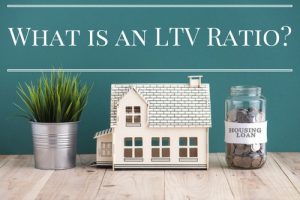What is an LTV Ratio?

An LTV, or loan-to-value ratio is a way of comparing the size of a home loan to the value of the property securing that loan. Many lenders use an LTV ratio to determine how risky a loan is, and it is often used in the loan approval process or to determine if mortgage insurance is required. Higher LTVs may indicate a higher risk loan since the borrower has less Âskin in the game and the lender is less protected if the borrower defaults on the loan.
Put simply; an LTV ratio indicates how much of a property you truly own versus how much you owe on it.
Why LTV Matters
 LTV ratios help lenders evaluate risks associated with their loans; the more they lend, the higher their risk. A high-risk loan means:
- It may be more difficult to be approved for a loan
- You may pay more per month due to a higher interest rate
- You may incur other costs such as PMI (Private Mortgage Insurance), which protects the lender if you put less than 20% down.
What is a Good LTV Ratio?Â
While the best LTV ratio is largely dependent on the type of loan you're seeking, the more equity you have invested going into the loan process, the better.
80 percent is seen as a magic number for home loans, as if you borrow over 80 percent, you will likely have to pay private mortgage insurance (PMI) to protect the lender. Though it is an extra expense, it can often be canceled once your LTV ratio drops below 80 percent. Some lenders will loan with as little as 3 percent down, and FHA loans only require a 3.5 percent down payment, but you will pay mortgage insurance (FHA calls it MIP, or the Mortgage Insurance Premium), possibly for the entire life of the loan.
Let Us Help
We understand how daunting it may feel to try and learn the ins and outs of home loans, and the team here at Butler Mortgage is here to help. We have your best interests at heart and will see you safely through your borrowing process. For any questions about LTV ratios or our lending options, call us today at 407-931-3800.





